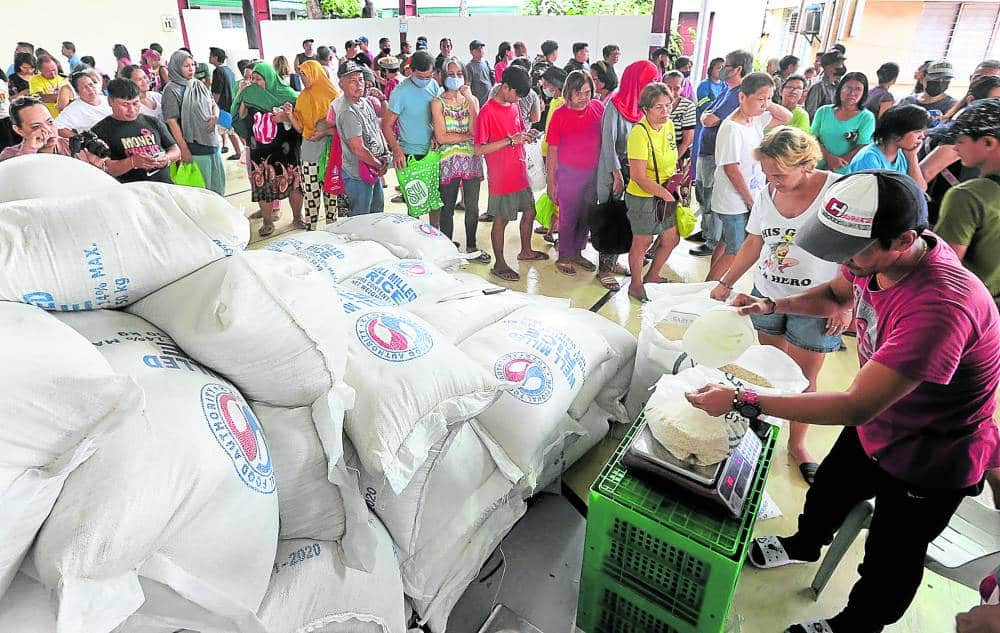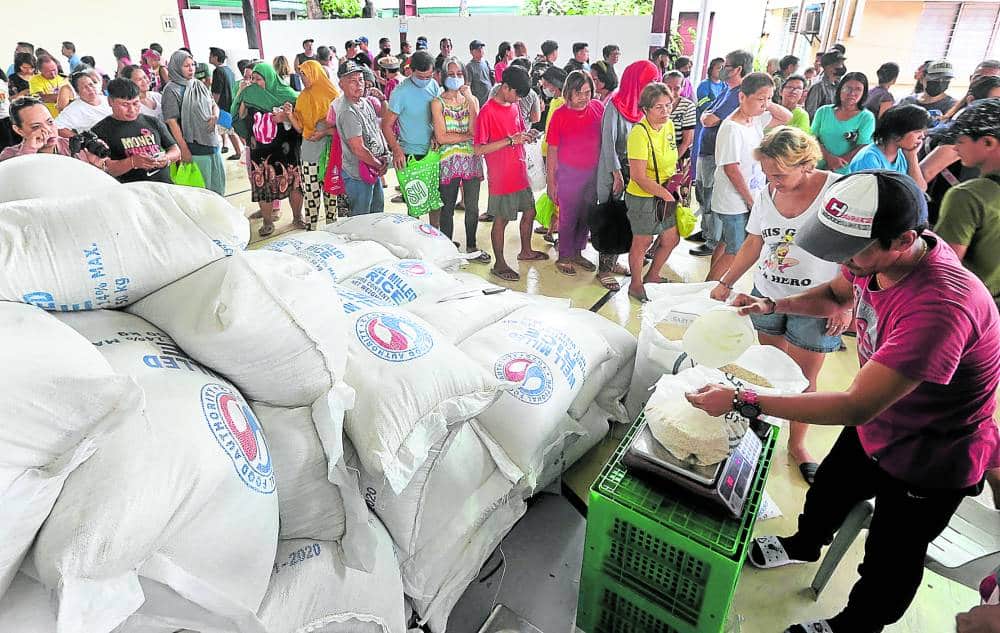
LINES OF THE TIMES A sizable crowd turns up at the launch of “Program 29,” the latest government effort to make rice more affordable especially for low-income households, at a Kadiwa center in San Andres, Manila. Under the program, rice is sold for just P29 per kilo, but only to target beneficiaries like indigent senior citizens, single parents, persons with disabilities, and residents covered by the poverty alleviation scheme 4Ps. Their rice purchases are also limited to 10 kilograms a month. —PHOTOS BY MARIANNE BERMUDEZ
MANILA, Philippines — If you spend more than P64 for three meals a day, you’re no longer considered “food poor.”
This was based on the data from the National Economic and Development Authority (Neda).
During the Senate panel on finance’s hearing on the proposed 2025 national budget on Tuesday, Sen. Nancy Binay asked Neda chief Arsenio Balisacan how the country classifies food-poor Filipinos.
READ: Walang Gutom 2027: 300,000 more families to get food stamps
“As of 2023, a monthly food threshold for a family of five is P9,581, that comes out [to] about P64 per person,” Balisacan said.
Binay asked if the P64 covers three meals per day. Balisacan answered “yes.”
“So parang lumalabas ho P20 per person per meal,” Binay said.
(So it appears that it’s about P20 per person per meal)
READ: Neda warns of higher food prices
Poverty threshold
She then asked if P20 was sufficient. According to Balisacan, the “basket has not been changed for some time.”
“The value of that basket has been adjusted for inflation, so yan actually yung adjusted for inflation na yon [and] we’ll be revisiting. I think it’s due for [a] revisit of that poverty threshold natin kasi medyo matagal na rin. More than a decade na yon since it was set. I think the changes in the economy warrant a revisit already of the threshold,” he explained.
READ: Report: CV’s poverty, hunger incidence increased in 2021
(The value of that basket has been adjusted for inflation, so that’s actually been adjusted for inflation and we’ll be revisiting. I think it’s due for a revisit because it’s been so long. It has been more than a decade since it was set.)
According to the Neda chief, the government is keeping it “constant” to allow the country to understand whether its policies and programs are working as far as the reduction of poverty is concerned.
READ: PH poverty rate slightly drops — PSA
Panel chairperson Sen. Grace Poe said there are “certain things” that have to be adjusted such as the computation of poverty threshold, noting that it might not be “workable” anymore.
“Let me clarify that the amount in terms of peso has been adjusted for inflation,” Balisacan said.
Food-poor threshold
The Neda chief also said the country’s food-poor threshold in 2021 was at P55 while it was at P63 in 2023.
“By 2024, that’s expected to go up to P67 also. Admittedly with the growth of the economy since 2010, this was the last time that [the] basket was determined by a combination of agencies — the Department of Health (DOH) [and] the Food and Nutrition Research Institute (FNRI). Sila ho ang nag-determine ng basket na yon and what constitutes a reasonable food basket that could meet the nutritional particularly calorie requirement,” Balisacan explained.
(By 2024, that’s expected to go up to P67 also. Admittedly, with the growth of the economy since 2010, this was the last time that the basket was determined by a combination of agencies — the DOH and FNRI. They are the ones who determined that basketball and what constitutes a reasonable food basket that could meet the nutritional, particularly the calorie requirement.)
He emphasized that it was not Neda but FNRI which invented the basket.
“Ngayon po yung per meal po kasi napaka very basic lang yung basket. Ngayon, of course, with the growth of the economy, as I said, maybe we should revisit that because preferences could have changed already, the relative prices have changed,” said Balisacan.
(Now with the per-meal price, the basket is very basic. Now, of course, with the growth of the economy, as I said maybe we should revisit that because preferences could have changed already, the relative prices have changed.)
